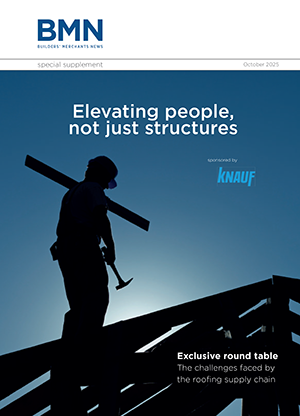A new Home Building Skills report has found that 50% of all housebuilders and 80% of housing associations are taking on an apprentice in 2013, showing that the sector is capitalising on the ‘green shoots’ of growth across the industry.
The report, published by the Home Builders Federation (HBF), National House-Building Council (NHBC), Construction Industry Training Board (CITB) and the Zero Carbon Hub, also found:
- Thirty-three per cent of housebuilding companies want to increase spend on training and 73% of the existing workforce would describe current skills levels as ‘good’
- All housebuilders provide some form of training to sub-contractors onsite and over 25% are spending more on training than five years ago
- Forty five per cent of the housebuilding industry believe more needs to be done to ensure the sector has the right skills in place when industry returns to growth
- Almost half of the housebuilding sector has been given some form of training in the last 12 months and the industry believes a ‘mastercraftsmen’ qualification to go past NVQ3 is required
- Better links between housebuilders, educational establishments and the construction industry are needed and the sector must promote itself better to attract school leavers and the best apprentices.
The report also revealed the impact the economic downturn has had on the housebuilding sector, causing 40% of jobs to be shed from the industry and leading to a third of companies spending less on training than five years ago.
It was also noted that with the general economic climate improving, and the constraints on supply being addressed, government initiatives such as the ‘Help to Buy’ scheme were helping to revive the housebuilding industry, which in Q1 2013 saw output increase 29.5% on 2012 and 0.2% on 2008 levels.
Mike Quinton, chief executive of NHBC, said: “Everyone has known for some time about the ageing workforce and the impact of the recession on our industry’s ability to attract and retain skilled workers. As the housebuilding industry shows the first signs of growth after several years, we are now hearing increasing alarm about the availability of the right people with the right skills to allow us to maximise these opportunities for growth.”
Stewart Baseley, executive chairman at HBF, added: “The past few years have been the most difficult people in our industry can remember. The industry has had to scale itself back to meet the level of demand and lost a lot of people. But with a new planning system in place and the ‘Help to Buy’ scheme addressing the constraint on buyers, optimism is increasing. As it has done after previous downturns, the industry is now looking to step up and ensure it develops the capacity to build more homes. It is vital we plan now to ensure we have the skills to increase supply to the required level.”
Steve Geary, skills strategy director, CITB said: “This research reinforces the need for the industry to be working with CITB on a skills action plan to meet the current and future needs of the housebuilding sector. With the emphasis on building more homes in the future to meet demand, we need more focus on investment in training now if we are to avoid skills shortages.”
The report further identified the need to address the skills gaps across the housebuilding sector by creating a better link between the workforce and its training needs and as a result, a new skills portal developed by NHBC, Zero Carbon Hub, CITB and the HBF, which signposts people to training, skills and qualifications in the housing industry help to address this issue has been launched.
Rob Lockey, training services manager, NHBC, added: “The portal provides an important pan-industry response to help tackle these skills shortages – to make it faster and easier for existing employees and new entrants to see what skills and qualifications are needed now and in the future, to support their career plans and to get them registering for training as quickly as possible.”
The Home Building Skills website offers advice on all the different job roles, career routes, and learning resource and qualifications information from national training providers. All colleges and training providers offering support to any job role in UK housebuilding are being urged to upload information to the portal for free.
Neil Jefferson, chief executive of Zero Carbon Hub, concluded: “The new report proves that after a turbulent few years the industry is showing real signs of recovery. From our perspective it is vital that we continue to help the industry understand the challenges and issues that lie ahead as the market looks to meet the demand for more new energy-efficient homes across the UK.”
The industry is now working together with training providers and the government to look at further measures to address the challenges ahead.





